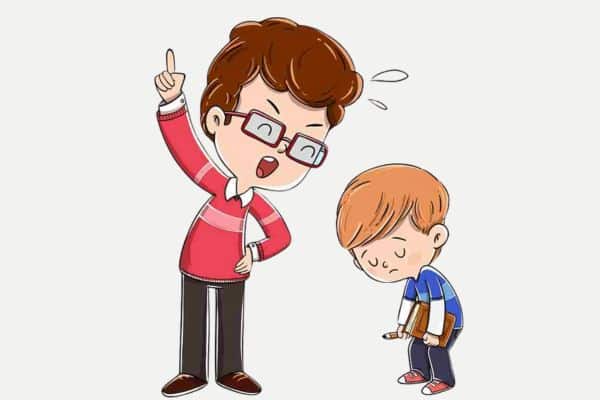“Children are apt to live up to what you believe of them.” – Lady Bird Johnson
Did you know that good child parenting is good for promoting your child’s social, physical, emotional, and intellectual growth? Many parents have various ways of raising their children that they think are good for them. There are different parenting styles that parents use. This article discusses the authoritarian parenting style.
What Is Authoritarian Parenting?
Strict rules, high demands, and a lack of flexibility characterize authoritarian parenting. In this parenting style, parents expect their children to follow their instructions without questioning or negotiating, and they use punishment or harsh discipline to enforce their rules. Authoritarian parents also tend to be less responsive to their children’s emotional needs and have high expectations for academic and behavioural achievements.
Children raised under authoritarian parenting tend to have lower self-esteem, less social competence, and higher levels of anxiety and depression. They may also struggle with making decisions independently and expressing their opinions, as they have been conditioned to obey authority without question. However, it’s worth noting that there are cultural variations in the definition and interpretation of authoritarian parenting, and what is considered authoritarian in one culture may be perceived differently in another.
Characteristics Of Authoritarian Parenting
The authoritarian parenting approach represents a more controlling system than teaching the children how best to manage their behaviours. Mostly in this form of parenting, there are no rewards or feedback, as the feedback comes in punishment for anything the child does wrong. The following are some of the characteristics of authoritarian parenting:
1. Very demanding, while no responsiveness
The parents will set very strict rules and regulations for the child. In addition, the parent may even tend to manage every part of the life and behaviour of the children. The management of the behaviour and lives of the child happens in private, i.e., at home and in broad daylight in public. The children also have various rules that the parents haven’t told them about, but they need to follow them. Without giving them further instructions on these rules, the parents expect them to abide by them.
2. There is little nurturing or warmth
The parenting style is characterized by harshness, aloof and coldness from the parents. Instead of praising or encouraging the children, they yell or nag at the children most times. Even a deed from the kid that deserved praise the parent won’t appreciate it. The parent usually thinks of disciplining their kids for any wrongdoing. The aspect of this parenting style is that the child should only be seen, not heard.
3. Punishment is a must
For this type of parenting, the only punishment the parents give the child is corporal. The punishment may involve yelling and beatings from the parents. Positive reinforcement is something of the past for this type of parenting. Anytime the kid breaks the rules, the parents react very swiftly and harshly instead of encouraging the child. The parents believe that any broken rule is equivalent to punishment.
4. Children have few choices
Children under authoritarian parents usually don’t have any options or choices in all aspects of their lives. The parents always have to set the guiding rules and regulations for their kids. When setting the rules, the kids aren’t consulted for any of the parents’ rules. Thus, it limits any negotiation and having the children contribute while setting the rules. The children are restricted from making their own choices.
5. Mistrusting
Authoritarian parents usually don’t trust their children to make good choices in their life. Therefore, the parents can’t allow the children to make any choices or have more freedom in their ways of life. The parents won’t let the child face the impacts of the choices they made. However, they’ll set the rules and monitor the children to ensure that they don’t go wrong or make mistakes by breaking any of the rules.
Effects Of Authoritarian Parenting
Authoritarian parenting is associated with various outcomes on the kid’s social life and academic life too. Some of the effects of authoritarian parenting include:
● Children who grow up under authoritarian parents tend to be very aggressive sometimes, especially when they are away from the parental watch. However, most of the time, they are shy and socially inept when in public as they can’t rely on their decisions.
● Authoritarian parenting breeds children who become big liars. The children have grown to know that any mistake is maybe punishable by corporal punishment, which most hate. Thus, to avoid punishment, the kids will have to lie to hide their mistakes. Therefore, the children may grow up with the lying character.
● When parental guidance isn’t around, the children may have various problems. The parents never taught the children how to set their own rules, limits, and standards; thus, they must always depend on their parent’s guidance. The children lacking the chance to act independently and explore will present a big problem when the parents are not around.
● Authoritarian parenting may lead to mental health problems such as stress, depression for the children. The children usually fear being reprimanded if they break any of the rules; thus, affecting the child psychologically. In addition, the child can’t easily share with the parent any problem they may be facing. They would rather stay with their problems as the parents won’t listen to them.
● However, many people may criticize authoritarian parenting, it may benefit the child. The child can fit into any society because children are associate with being obedient. The children who have been brought up following the rules the parents set becomes very obedient, knowing that breaking any of the rules may lead to punishment. Authoritarian parenting presents the same setting in the society where people live by abiding by the rules the administration sets.
Final Thoughts
On the positive side, children raised by authoritarian parents may have strong self-discipline, be good at following rules and have a sense of responsibility. On the negative side, they may also experience higher levels of anxiety, low self-esteem, and a lack of autonomy due to strict and punitive parenting styles.
It’s important to note that parenting styles are not mutually exclusive, and many parents may use a combination of different styles. Every child is unique, so what works for one may not work for another. Ultimately, parents should strive to create a nurturing and supportive environment for their children while also setting appropriate boundaries and expectations.
Regardless of the parenting style, parents should aim to create a healthy relationship with their children, encourage open communication and dialogue, and foster an environment where their children feel loved, supported, and empowered.













